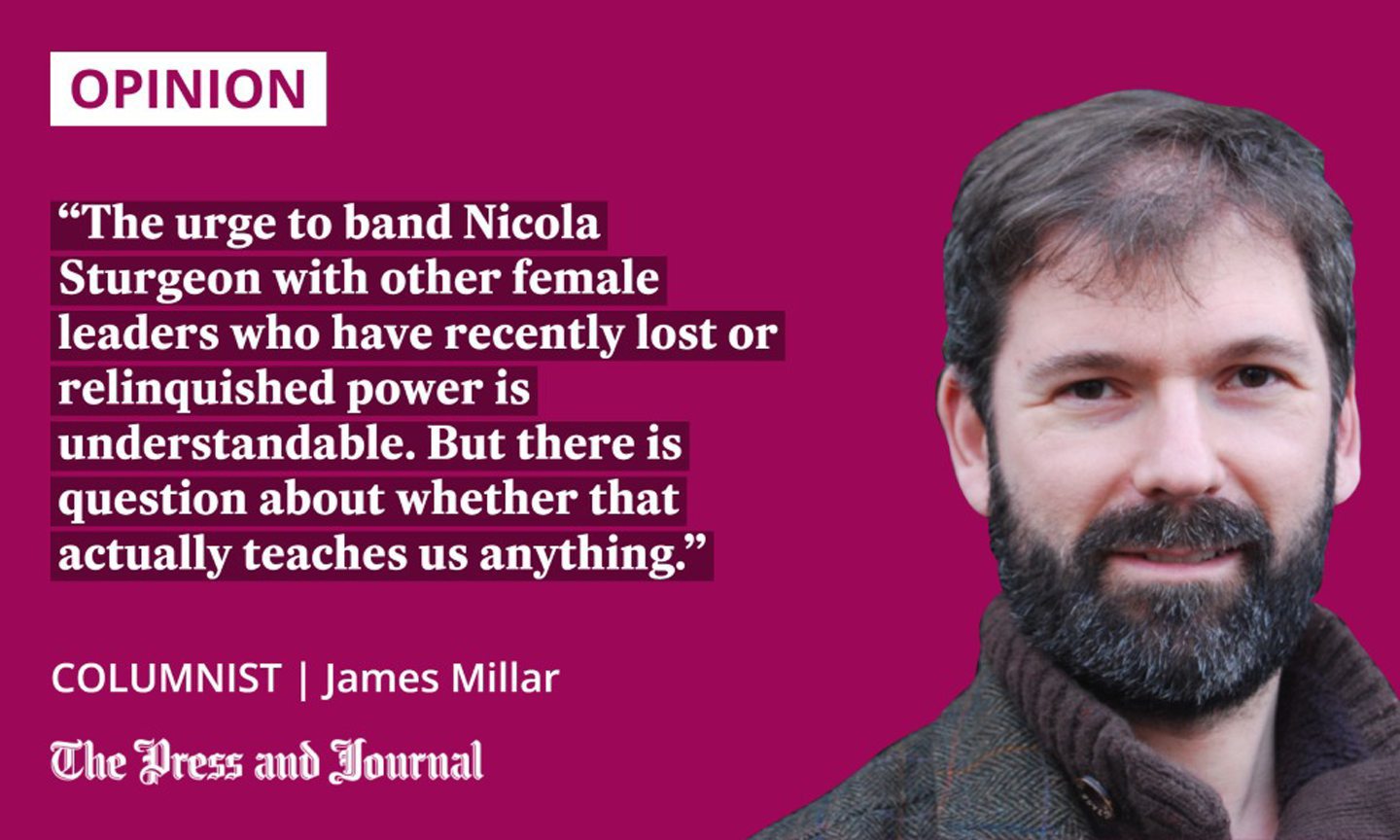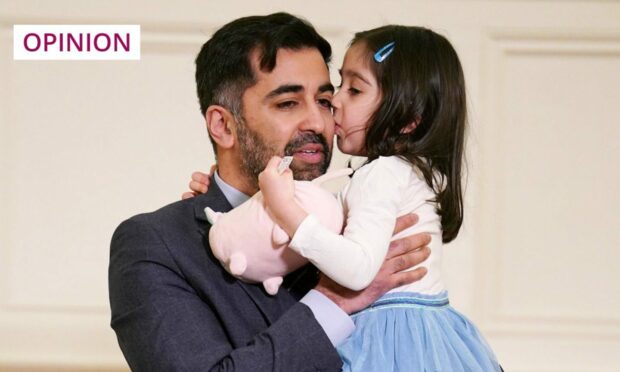We must avoid applying patterns where none exist, particularly when it comes to those leading us, writes James Millar.
A fundamental part of the human condition is the ability to spot patterns. It has fuelled our evolution, but it doesn’t always serve the species well.
When we go looking for series and similarities that aren’t there, it’s actively unhelpful.
So, the urge to band Nicola Sturgeon with other female leaders who have recently lost or relinquished power is understandable. But there is question about whether that actually teaches us anything.
Jacinda Ardern, the ex-New Zealand prime minister, and Sanna Marin, the possibly soon-to-be ex-Finnish prime minister, would probably jog along well with the definitely soon-to-be ex-first minister. But that’s primarily because they share a progressive politics, not because they share a gender.
That trio comes from a different tradition to Angela Merkel, and they would all struggle to get on Liz Truss’s wavelength (a signal still being beamed into space in an effort to see if any lifeforms out there can comprehend what she’s all about).

To be honest, Sturgeon probably wants to avoid any mention of gender at all, given her recent travails on the topic.
Professor Rosie Campbell, head of the Global Institute for Women’s Leadership, reckons all of the above do have something in common that is worth considering – as women in politics, they would’ve been on the receiving end of more abuse, particularly over the internet, than their male counterparts.
None of them specifically cite online hate as a reason for quitting. They, quite correctly, would not want the keyboard crazies to think their activities are either acceptable or successful. But all would recognise Professor Campbell’s point.
Sanna Marin is one of the youngest leaders in the world, and her opponents weaponised a video of her having a drink and a dance with friends. (Though the upside of the internet came to the fore when women around the globe, including Hillary Clinton, posted their own dancing videos in support.)
Sturgeon went out of her way to highlight the divisions that bedevil Scottish politics and society. Divisions, it has to be said, fuelled by a binary referendum on independence.
Sturgeon sought empathy as she announced her resignation and spoke of love. None of those to have recently vacated Downing Street – female or male – have reached for a similar tone or language.
Angus Robertson and Neil Gray broke the mould by putting family first
A more interesting pattern may be among those runners and riders tipped for a tilt at the top in the weekend papers. Angus Robertson and Neil Gray are both stronger candidates than any of those actually campaigning to be FM, but both cited the fact that they have young families as among the reasons why they would not be seeking the job.
That’s a huge break with history, and a significant divergence from Westminster orthodoxy. Boris Johnson has a number of families, the youngest of which might be expected to take up his time and attention, yet which appears not to interfere with either his ambition to return to Downing Street nor his ability to accept lucrative speaking engagements around the globe.
STATEMENT: SNP Leadership Election pic.twitter.com/IpRpnw5Nyq
— Angus Robertson (@AngusRobertson) February 20, 2023
Yes, Johnson, like Marin, was attacked for partying while PM. The difference being that Johnson’s activities were illegal under the very rules he’d introduced.
During the first Tory leadership campaign of last year, Rishi Sunak was accused of a gaffe when he was asked his family’s favourite item at McDonald’s and named a breakfast wrap no longer served there.
His campaign team pointed out that he’d hardly had time to take his daughters out anywhere in the last few years, as if this was something to be proud of. Someone ought to introduce the Tories to Mary Poppins.
Politicians should be free of gender or family expectations
It’s a fairly tired mantra, but it’s true: there’s a reason Disney doesn’t make films about kids who wish their fathers spent more time at work. So, the SNP’s Robertson and Gray ought to be applauded by those dads who want to be more involved with family life now, and can point to high profile role models, and by their children, who will hopefully appreciate the decision in the future (but, being kids, almost certainly won’t).
But we must be careful of, once again, applying patterns where none exist. For parents come in all shapes, sizes, styles and genders.
Yousaf and Forbes have simply made a different calculation about what is best for their family
Robertson and Gray have put family first. But it would be unfair and untrue to then infer that Humza Yousaf and Kate Forbes, who also both have young children, are unfussed about the welfare of their offspring. They have simply made a different calculation about what is best for their family.
And that is where we ought to be – male and female politicians, free of expectations when it comes to their gender or family circumstance, and judged on public persona and policies.
Fingers crossed the rest of the leadership campaign proves as refreshing.
James Millar is a political commentator, author and a former Westminster correspondent for The Sunday Post


Conversation